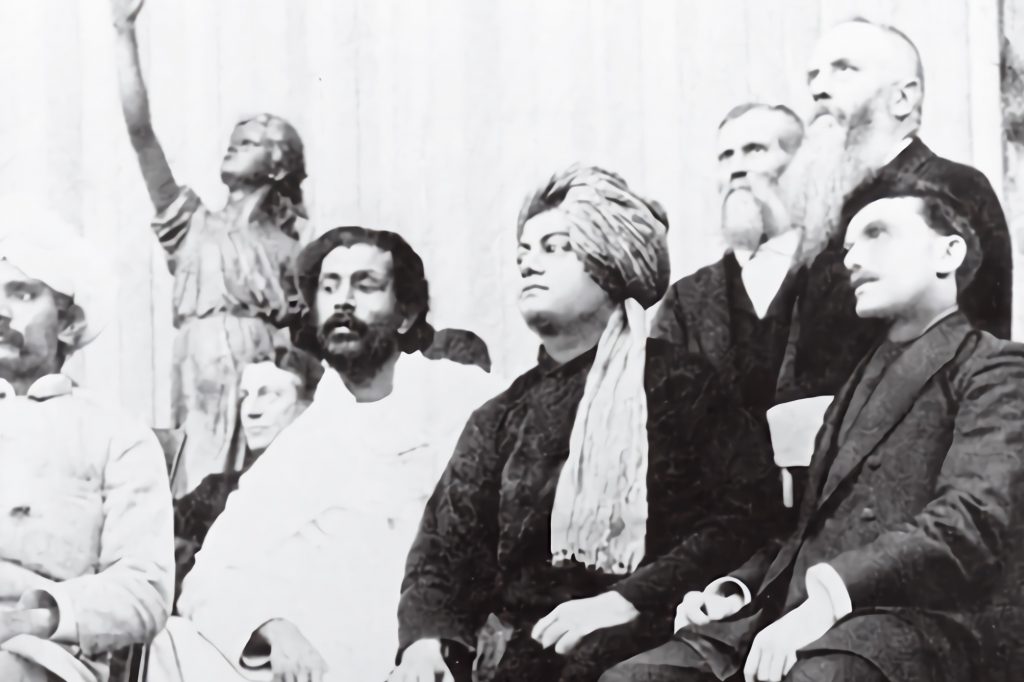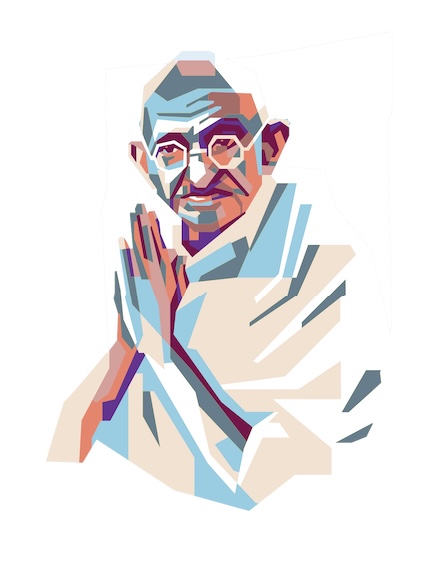“Silence is the language of God, all else is a poor translation.” Rumi (1207-1273), Sufi mystic and poet
The stars are not afraid to appear like fireflies. Rabindranath Tagore (1861-1941), Bengali poet and philosopher
Things do not grow better; they remain as they are. It is we who grow better, by the changes we make in ourselves. Swami Vivekananda (1863-1902)
We are like butterflies who flutter for a day and think it is forever. Carl Sagan (1934-1996), famed astrophysicist
Don’t explain your philosophy. Embody it. Epictetus (55-135 ce), stoic philosopher
The season of failure is the best time for sowing the seeds of success. Paramahansa Yogananda (1893-1952)
Be fearless, let fearlessness radiate from you and dispel fear in the hearts of others.
Govinda Bagavatpada, guru of Adi Shankara
A wise man fills his head before emptying his mouth. Kenyan Proverb
Death is not the end. Death can never be the end. Death is the road. Life is the traveler. The Soul is the Guide…. Our mind thinks of death. Our heart thinks of life. Our soul thinks of Immortality. Sri Chinmoy (1931-2007), renowned spiritual leader
Relieving the ravaging hunger of the poor is a right use for wealth men have obtained. Tirukural 226
Only those who attempt the absurd can achieve the impossible. Albert Einstein (1879-1955)
The best way to find yourself is to lose yourself in the service of others. Mahatma Gandhi (1869-1948)
There are two means of refuge from the misery of life—music and cats. Albert Schweitzer (1875-1965), German theologian and musician
Peace is your natural state. It is your mind that destroys it. Sri Ramana Maharshi (1879-1950), South Indian mystic
Don’t worry, be happy!
Meher Baba (1894-1969), Indian Guru
Q- Why is Ganesha equated with the primordial sound pranava (OM)?
M- Because Ganesha represents the knowledge prana, the vital breath. Out of the pranava, the product of prana, the vocal language develops, after passing through four stages—para, pashyanti, madhyama and vaikhari. Para is the source and the subtlest stage, while vaikhari is the grossest, representing the bursting out of vocal language. The state prior to para is “Love to be,” the sense of love, which gives rise to all activities. That state is Ganesha. Sri Nisargadatta Maharaj (1897-1981) A guru of the Inchagiri Sampradaya
I must not fear. Fear is the mind-killer. Fear is the little-death that brings total obliteration. I will face my fear. I will permit it to pass over me and through me. And when it has gone past I will turn the inner eye to see its path. Where the fear has gone there will be nothing. Only I will remain. Frank Herbert (1920-1986), author of Dune
The life ahead can only be glorious if you learn to live in total harmony with the Lord. Sai Baba of Shirdi (1838-1918) Indian spiritual master
Don’t let the noise of others’ opinions drown out your own inner voice. Steve Jobs (1955-2011) founder of Apple
They are learned in Vedic lore. Knowing God is within them, they thought themselves to be God and plunged into distracting pleasures, forgetting all thought of God.
Tirumantiram 529
Perfection is achieved not when there is nothing more to add, but rather when there is nothing more to take away. Antoine de Saint-Exupéry (1900-1944) French writer and aviator
The Self indeed is below. The Self is above. The Self is behind. The Self is in front. The Self is to the south. The Self is to the north. The Self, indeed, is all this. Chandogya Upanishad, 7.5
When we look at the world as providing our happiness, life is a constant series of emotional ups and down. When we derive our contentment from within, life is joyous, and we can share that joy with others. Satguru Bodhinatha Veylanswami, publisher of Hinduism Today
People act in evil ways who have lost touch with their soul nature and live totally in the outer, instinctive mind. What the ignorant see as evil, the enlightened see as the actions of low-minded and immature individuals. Satguru Sivaya Subramuniyaswami (1927-2001), founder of Hinduism Today
Did You Know?
The Friendship of Swami Vivekananda and Nikola Tesla
You probably never thought of the two together, but Swami Vivekananda, Hindu monk and founder of the Ramakrishna Mission, and Nikola Tesla, Serbian-American inventor who was pivotal in the creation of the alternating current (AC) power system, were actually well acquainted. When Tesla wasn’t pursuing world-changing inventions, he was contemplating philosophy and metaphysics, something Indian sages have been excelling at for millennia. Vivekananda hoped Tesla would be able to prove, in a way satisfying to the Western mind, the truths expounded in the Vedas. This included concepts such as universal oneness, which Tesla approached through his intuitive sense that matter and energy are different aspects of the same thing. Naturally, their mutual interest sparked a friendship.

Swami Vivekananda wrote the following after their first meeting in 1896: “Mr. Tesla was charmed to hear about the Vedantic Prana and Akasha and the Kalpas, which according to him are the only theories modern science can entertain…. Mr. Tesla thinks he can demonstrate mathematically that force and matter are reducible to potential energy. I am to go see him next week to get this mathematical demonstration.”
It would have been incredible to see where their friendship would have led if it had not been cut short when Swami Vivekananda died after his third heart attack on July 4, 1902. Years later, Tesla would go on to write an article for the New York Journal titled “Man’s Greatest Achievement,” attempting to describe the nature of human existence using the same mystical Sanskrit language Swami Vivekananda had introduced to Tesla during their first meeting.
Basics
To Cause No Harm
The rishis who revealed the principles of dharma in Hindu scripture knew full well the potential of human life for entangling itself in suffering and the path which could avert it. They explained that one spiritual force flows in and through all things in this universe, conferring existence by its power. According to their ancient wisdom, life is a coherent process leading all souls without exception to enlightenment, and no violence can be carried to the higher reaches of that ascent. Sages taught a philosophy of non-difference of self and other, asserting that in the final analysis we are not separate from the world nor from the Divine which shines forth in all things and all peoples. From this understanding of oneness arose the philosophical basis for the practice of ahimsa, noninjury, and Hinduism’s ancient commitment to it.

Gandhi, one of the most famous proponents of non- harmfulness, with hands in anjali mudra
Sage Vyasa defines ahimsa as “the absence of injuriousness toward all living beings in all respects and for all times.” He said that a person engaged in the true practice of ahimsa would be freed from all enmity. Rishi Patanjali, revered author of the Yoga Sutras, regarded ahimsa as the yogi’s mahavrata, the great vow and foremost spiritual discipline of those seeking Truth.
Drawn from the teachings of Satguru Sivaya Subramuniyaswami
